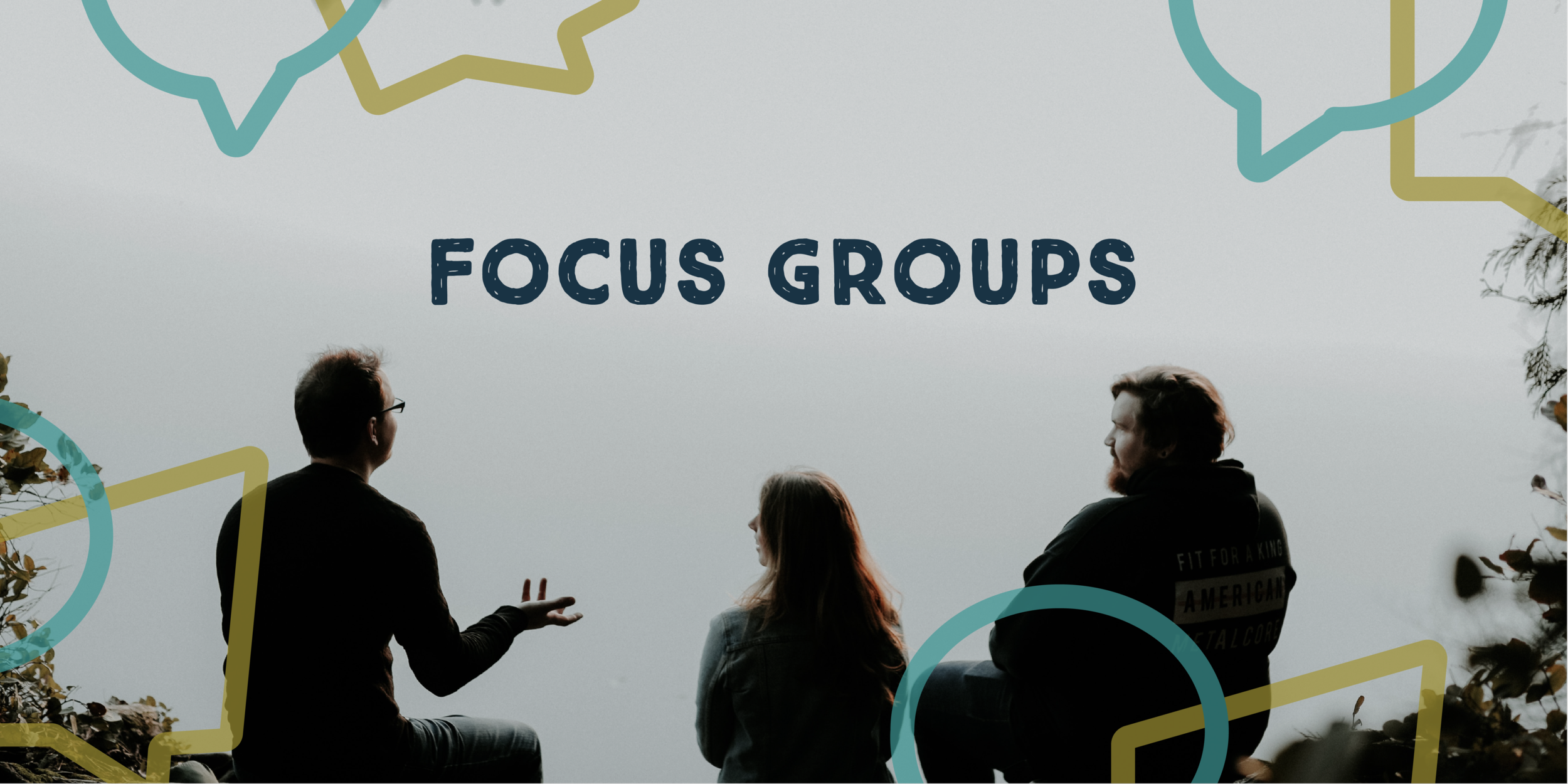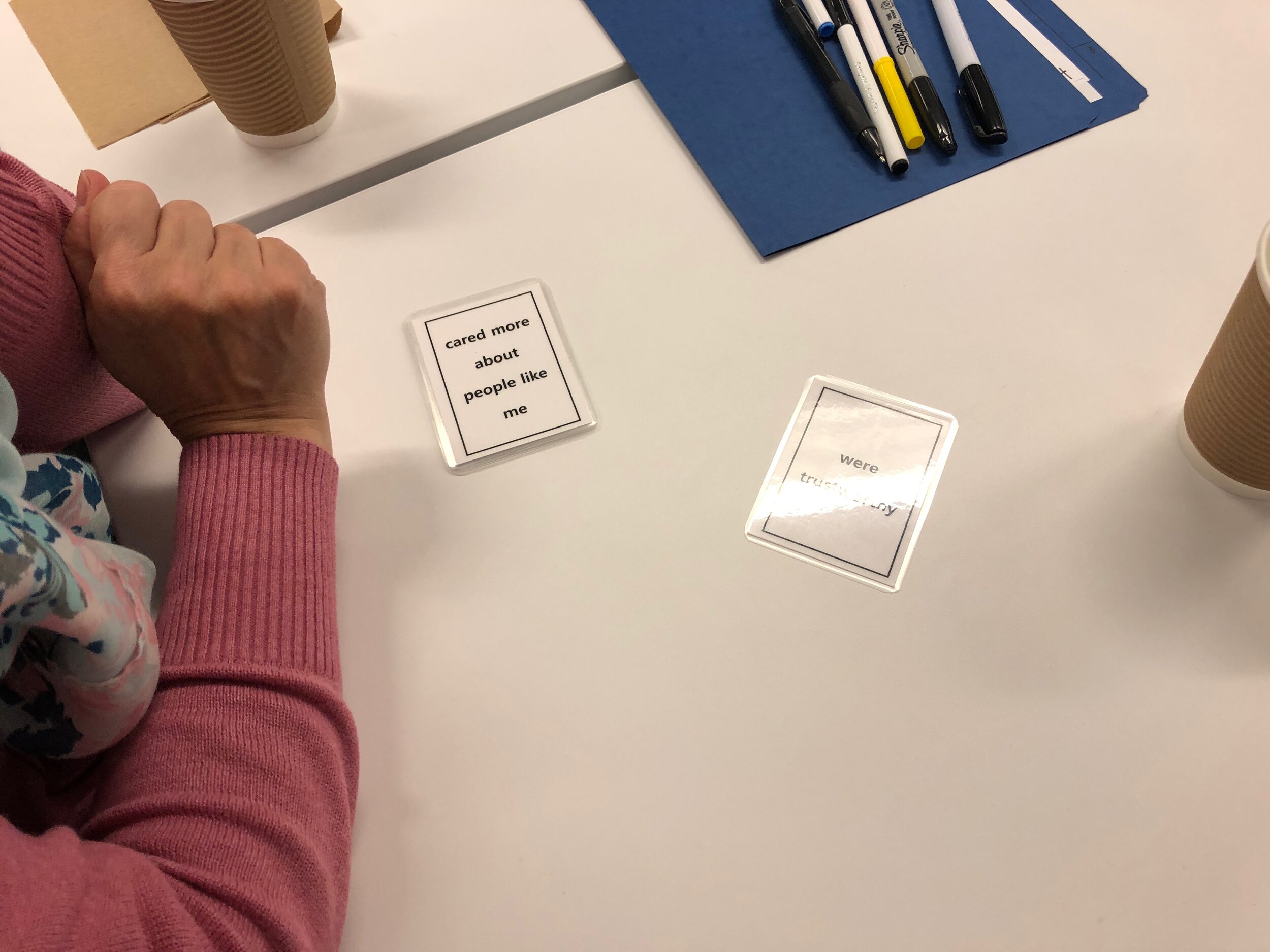
Jared Wesley is leading the research team in convening 78 focus groups in 13 communities across Alberta and Saskatchewan.
Activity-based methods are necessary to evoke the sort of socially- desirable and politically-correct reactions from participants that tap into the community’s deeper political culture.
Participants from different backgrounds come together during these semi-public forums where they are presented with an array of exercises intended to inspire their creativity and uncover deeply-held political values and expectations.
Fourteen unique activities have been tested successfully to date, with four (4) described below.
Draw Me a Westerner
Draw Me a Westerner
It sounds simple, and it tells us so much. Provided with a piece of paper and pen, and no further indications, participants are asked to draw the first thing that comes to mind when they hear “Albertan” or “Saskatchewanian”. The result: a roomful of images depicting the typical residents of their province, including their names and backstories. These caricatures form the foundation of the rest of the activities, as we ask participants to describe the world through the eyes of Joe, Bob, Tyson, and others. To learn more about our findings, review our Research Brief: “Who is ‘Average Joe’ Albertan?” and our recent Substack post. See the video below for how our initial findings help shed light on the intersection of political culture, public opinion, and public policy.
Build a Map
Designed to uncover perceptions of each Canadian region, participants are provided with a blank map of Canada that has no writing on it. Divided into two groups, they are asked to come to a consensus with their peers and write down five words or phrases that best describes each region.
Who does it better?
Presented with three images that comprise different groups of people (seniors, unemployed workers, and single moms), participants first discuss the challenges that each group faces currently in society. They are then asked to come up with who is best positioned to help these groups overcome their challenges. Ranging from family and church to various orders of government, these responses are recorded on sticky notes and added to the image in order to have a group discussion on the reasoning behind each answer.
Wouldn’t it be nice if…
For this interactive activity, the facilitator presents participants with a card saying “Wouldn’t it be nice if…” followed by a different group of people. For example, “Wouldn’t it be nice if politicians...”. Then each participant plays one of the cards that have been dealt to them as a response (e.g., “knew how the rest of us lived” or “were appreciated more”).
Joe TV
Participants from previous Common Ground focus groups are invited to explore the character of "Joe Albertan.” These interactive and improvisational sessions allow participants to shape Joe's story and interactions with family and friends. The aim is to understand how Joe thinks, feels, and acts in various scenarios, providing deeper insights into his character.
“Episodes” of Joe TV
We present scenarios as episode descriptions that place Joe in different situations, gauging how participants believe he would react. Based on audience feedback, we replay or continue these scenarios to prompt deeper reflection, encouraging a more nuanced view of Joe's personality and decision-making.
Think, Feel, Do.
Each participant receives a notepad with the prompt, "What would Joe think, feel, and do?" These notepads are used throughout the sessions to jot down thoughts and insights as they immerse themselves in Joe's perspective. This captures real-time reactions and reflections, augmenting the insight into Joe Albertan's character.
Collaborative Partners
We work with seasoned improvisers from Rapid Fire Theatre, Edmonton's longest-running improv theatre company. Their expertise in improvisation brings a dynamic and authentic element to the sessions, making the exploration of Joe's character more engaging and immersive for participants.








